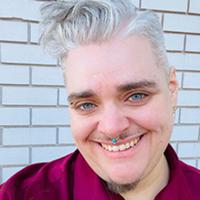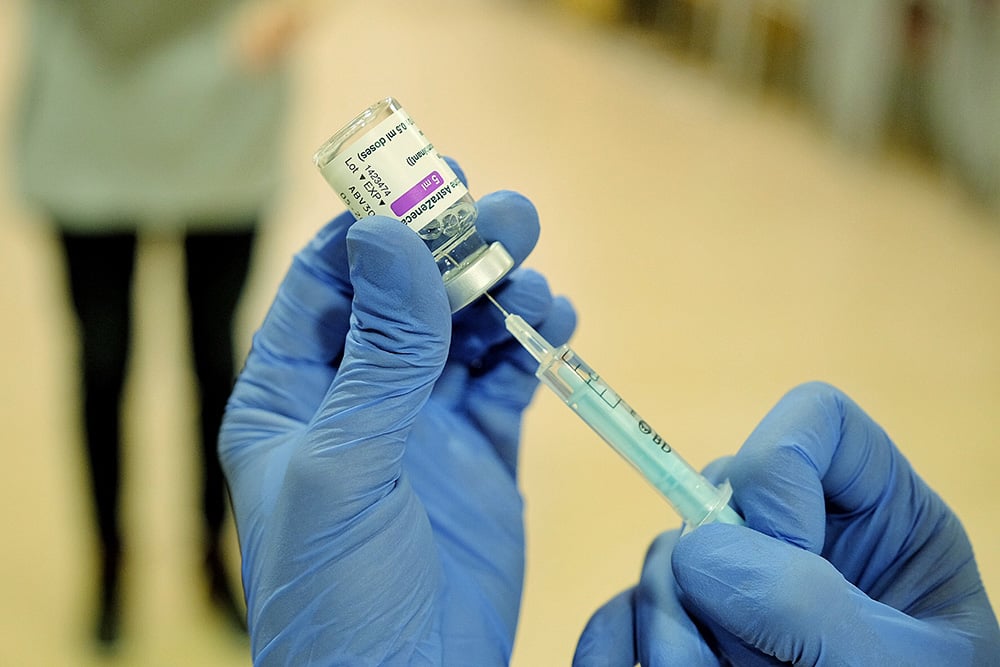Toronto cardiologist Harry Rakowski recently argued that Canadian provinces should not levy taxes on unvaccinated people for “needlessly strain[ing] our health-care budgets.”
This could be a slippery slope, Rakowski suggests. If we tax the unvaxed, why not tax those with conditions aligned with higher risk for severe outcomes, too? He names the usual suspects, what he calls “expensive but preventable illness”: heart disease and stroke, “obesity,” diabetes and cancers sometimes associated with high-fat diets, processed meats, excessive alcohol intake, smoking and pollution.
In my 38 years of fat life, I have learned that Rakowski’s attitude is fairly indicative of the public’s willingness to hastily jump to the idea of punishing large people. What makes us such appealing targets in these kinds of thought experiments?
I was diagnosed with diabetes in 2018. Four months later, it was in remission and has remained there, medication-free. While I’m happy about this, my diabetes educator — Kim Colpitts of Fredericton — reminds me that exercise and diet are only two of umpteen factors that determine the ever-unfolding path of one’s blood and its sugars.
Other factors: ethnicity, genetics, related conditions such as polycystic ovarian syndrome (another condition I know personally), social class, geography, trauma, access, and our relation to xenophobia and colonialism. (A “diabetes tax” is anti-Indigenous, full stop.)
So why do many Canadians overestimate the role of lifestyle choices?
Because they are the elements we believe we can control, and we love control, even when illusory.
We often believe that we can achieve absolute mastery of the body. But in order to feel that way, we sometimes recruit other people into the act — people we feel lack the control we crave so desperately. Could we please stop using fat people as props in these public dramas of the healthy self?
It is worth remembering that we are fearful, vulnerable and insecure creatures. Rakowski refers to diseased people like me as “frail.” But frailty is a human condition. It cannot be outrun — or out elliptical’d. It can’t be located in diseased “others” and held safely at a distance.
We make-believe that bodies are objects to control or master, even as most of us experience the opposite. We venerate the human will in order to battle back our rightful suspicion that external forces can indeed shape us and hurt us. We do “all-or-nothing” thinking; we try to feel completely in charge or completely helpless.
Neither is true. We make choices in a world we didn’t choose. We become accountable to ourselves in a culture that likely was not accountable to our ancestors or friends. We make decisions in the middle of things, as imperfect bodies in imperfect contexts.
Forgetting this kills compassion, including for oneself. Most of us live with some degree of shame and self-loathing. That January is recognized as a month not so much of weight loss as of public self-flagellation is evidence. And if you think shame normalizes people, take a look around. If shame worked that way, I’d be a slender straight woman.
Shame does have some transformative effects, though — just not the ones you may think. Research the effects of stress and cortisol on metabolism and diabetes. Shame is incredibly expensive. It’s also preventable. Yet we collectively choose it again and again.
Rakowski’s premise is that large people are not taxed. Oh yes, we are. On the sidewalk, in job interviews, in classrooms, in the media, and everywhere else bodies are translated into value and cachet. The relentlessness of these constant “taxes” makes us sick.
Besides, people choose lots of expensive things — large homes, large families, tiny expensive cars, bodies bedecked in luxe workout gear and pampered with the latest lotions, injections or workouts — that we praise and incentivize. I don’t necessarily have any complaints about these things. But I name them so as to point out that what is at stake here is not choice per se, but our varying beliefs about what lives are worth living and what actions are worthy of risk.
Some people believe the diseases that Rakowski lists are not really diseases of the heart, lung or other organs, but of one’s personhood. By this logic, hypertension, for instance, is just a symptom of the diseased self, a self of excess and decadence.
This is some Victorian stuff!
Comparing disease to vaccination remains a faulty parallel. One can’t reach into one’s past or genetic code to flip a switch. The social development of a disease is complex and long, while vaccination status can physically and bureaucratically toggle from “no” to “yes” in a needle’s prick (plus that 15-minute denouement).
I picked up dumbbells, but I didn’t shape my genetic code to respond in a certain way. I dealt with traumas I didn’t choose in ways I did choose. I am fortunate and privileged; I am unlucky and oppressed. Someday my blood will stop co-operating, and I will have to adapt. We change. We can’t anticipate how.
Few want to recognize that uncertainty. It’s been the pandemic’s outsized carnal challenge.
Pandemic life has clarified what it means to exist only in relation to each other, to history, and to the inheritances of genes, environments and happenstance. If I — or you — survive COVID, our actions played some unquantifiable role. But it is not a personal accomplishment nor does it signal you are a good person. We disserve ourselves and our dead when we speak that way. ![]()
Read more: Health, Rights + Justice, Coronavirus

















Tyee Commenting Guidelines
Comments that violate guidelines risk being deleted, and violations may result in a temporary or permanent user ban. Maintain the spirit of good conversation to stay in the discussion.
*Please note The Tyee is not a forum for spreading misinformation about COVID-19, denying its existence or minimizing its risk to public health.
Do:
Do not: